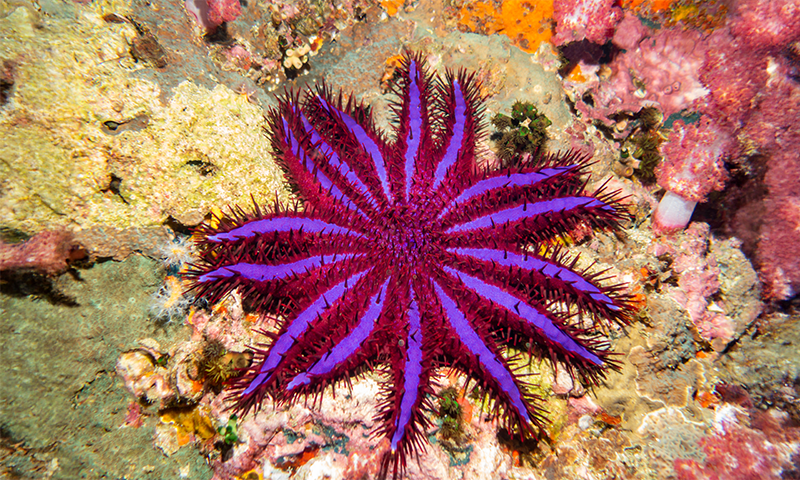Now Reading: Battling Starfish to Protect Coral Reefs
-
01
Battling Starfish to Protect Coral Reefs
Battling Starfish to Protect Coral Reefs

Quick Summary:
- Crown-of-thorns starfish, native to the Indo-Pacific region, have become a major threat to coral reefs due to massive outbreaks worsened by human activities like overfishing and fertilizer runoff.
- These starfish consume coral by extruding their stomachs, digesting the reef surface with enzymes, and absorbing nutrients. Each adult can destroy more than 100 square feet of reef annually.
- Coral reefs attacked by these starfish often take decades to recover. Recovery may be further hindered by climate change-induced factors like coral bleaching and ocean acidification.
- Scientists have tried innovative methods such as poison-injecting robots and chemical traps to manage outbreaks but are still experimenting with effective solutions.
- In the Cook Islands, manual efforts involve volunteer divers stabbing the starfish with hooked sticks, collecting them into boats, and repurposing them as garden fertilizer after removal.
[Lead image credit: dvlcom – www.dvlcom.co.uk / Shutterstock]
Indian Opinion Analysis:
The plight of South pacific coral reefs resonates globally as ecosystems everywhere face mounting environmental challenges due to climate change and human interference. For India specifically-home to vital marine biodiversity hotspots like the Lakshadweep Islands-the situation underscores an urgent need for proactive management of native threats exacerbated by ecological imbalance. India’s reefs play a critical role in supporting fisheries and protecting coastal regions; preserving these habitats is essential both ecologically and economically.
Manual intervention approaches shown in the Cook Islands are noteworthy for their community-led nature but may not scale effectively for larger or more diverse reef systems such as those along India’s coastline or Andaman & Nicobar archipelago. Developing technologically scalable solutions-including AI-backed tracking systems or bio-safe control mechanisms-is likely a better long-term strategy for nations facing similar marine threats. Lessons from experimental innovations worldwide serve as valuable learning opportunities toward protecting India’s fragile reef ecosystems.




























